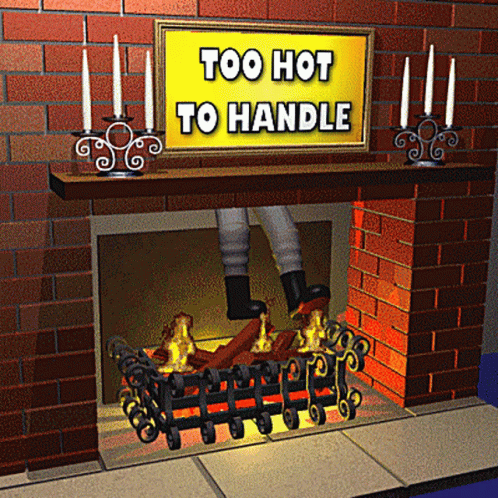Summer is a season of sun-soaked adventures, outdoor barbecues, and lazy days by the pool. But as the temperature rises, so does the dependency on our trusty air conditioning (AC) units. Have you ever walked up to your AC unit, only to find that it’s hotter than the outside air? You might be asking yourself, “What’s the deal with my AC unit being too hot to touch?” This unexpected phenomenon can pose a playful challenge for homeowners—one that carries with it a range of potential issues and solutions. Let’s explore this topic in-depth, understanding both the causes and the steps to ensure your cooling system remains both functional and safe.
The first question to consider is: Why is your AC unit emitting heat that rivals a summer afternoon? This is not just a random occurrence. Air conditioners are intricate machines designed to cool your indoor environment by removing heat. Hence, a certain amount of heat emission is expected from your unit, especially from the exterior components, which include the compressor and condenser—key players in the cooling process. But when these elements become ‘too hot to handle,’ it could indicate a malfunction.
So, what are some common causes of overheating in AC units? First and foremost, poor airflow can significantly contribute to an AC system running hotter than average. If your air filters are filthy or blocked, the air cannot circulate properly, which compels the unit to work harder to achieve the desired temperature. Imagine trying to breathe in a crowded room—exhausting, right? Your AC unit feels the same way when airflow is restricted.
Another culprit could be refrigerant issues. Refrigerant is the lifeblood of your cooling system, and if it’s low due to a leak or if it’s overwhelmed, the AC unit will struggle, leading to excessive heat. This can be likened to racing a car without enough fuel—eventually, it’s going to stall. Regular maintenance checks can identify and rectify refrigerant issues before they escalate.
Electrical components may also be at fault. Overheating wires or malfunctioning capacitors can lead to inefficiency and a dangerous buildup of heat. It’s imperative to be vigilant about potential electrical problems, as they can pose a fire hazard and lead to costly repairs. It’s wise to consult a licensed HVAC technician if you suspect electrical problems.
Now that we’ve addressed some root causes, let’s consider the repercussions of neglecting an overheated AC unit. Not only could you face diminished cooling capacity, but running an overworked AC can lead to skyrocketing energy bills. Just imagine budgeting for a trip, but an unexpected increase in energy costs throws your plans into disarray. Not to mention, a system that’s continuously overexerted is at greater risk of complete breakdown, resulting in inconvenient and costly repairs.
So, what can you do when faced with an AC that feels alarmingly hot? The first step is a thorough inspection. Replace or clean the air filters—this simple act can restore airflow and efficiency. Keep the outdoor unit free from debris like leaves, dirt, and grass clippings, as these can impede functionality and exacerbate heat issues.
If you’ve addressed airflow concerns and the problem persists, check refrigerant levels. Sometimes it’s as simple as replenishing a low supply, but identifying leaks may require professional help. This is a vital step because continued operation with insufficient refrigerant can cause compressor failure, a major expense. If this happens, the cooling unit may become akin to a ship with a punctured hull—greatly limited in its function.
For electrical issues, be proactive. Inspect the insulation around wires for wear and tear or loose connections. Inspecting capacitors should ideally be left to professionals, as mishandling can result in serious injury. Professional technicians are trained to conduct these evaluations safely and ensure that your system operates at peak performance.
Finally, a sound maintenance schedule can drastically reduce the likelihood of encountering an overheated unit in the first place. Regular check-ups can catch minor problems before they blossom into significant headaches. Investing in routine cleaning and inspections creates a healthy living environment and can prolong the lifespan of your AC unit.
In conclusion, before you leave your AC unit to simmer, take a step back and assess what’s at play. How you respond to this challenge will determine your comfort during the sweltering months. By understanding the causes, recognizing the signs, and taking swift action, you can keep your home refreshingly cool, avoiding the predicament of a scorching AC unit that’s too hot to touch. So, the next sizzling summer day, instead of sweating over a faulty AC, enjoy the breezy comfort that crisp, cool air can provide. Taking these steps not only enhances your home’s atmosphere but also allows you to relish all the joys of summer without a hitch. It’s time to master the heat—one AC unit at a time!
